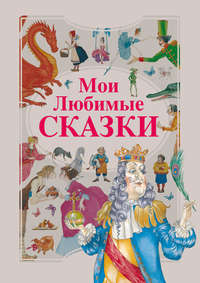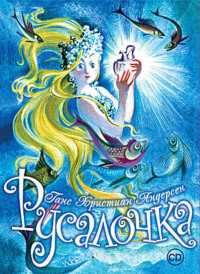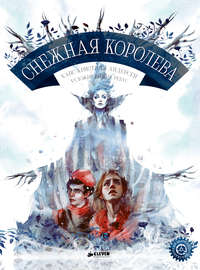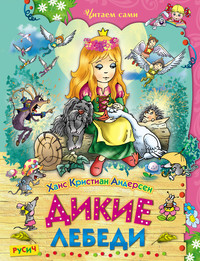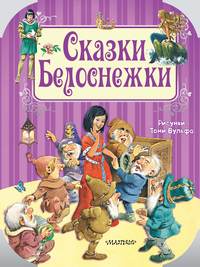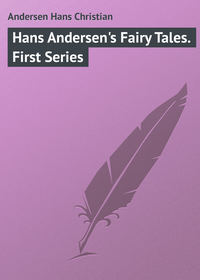 полная версия
полная версияWhat the Moon Saw: and Other Tales
The swans flapped their wings and arched their necks, as if they would send her a greeting, and the Viking's wife spread out her arms towards them, as if she felt all this; and smiled through her tears, and then stood sunk in deep thought.
Then all the storks arose, flapping their wings and clapping with their beaks, to start on their voyage towards the South.
"We will not wait for the swans," said stork-mamma: "if they want to go with us they had better come. We can't sit here till the plovers start. It is a fine thing, after all, to travel in this way, in families, not like the finches and partridges, where the male and female birds fly in separate bodies, which appears to me a very unbecoming thing. What are yonder swans flapping their wings for?"
"Well, everyone flies in his own fashion," said stork-papa: "the swans in an oblique line, the cranes in a triangle, and the plovers in a snake's line."
"Don't talk about snakes while we are flying up here," said stork-mamma. "It only puts ideas into the children's heads which can't be gratified."
"Are those the high mountains of which I heard tell?" asked Helga, in the swan's plumage.
"They are storm clouds driving on beneath us," replied her mother.
"What are yonder white clouds that rise so high?" asked Helga again.
"Those are the mountains covered with perpetual snow which you see yonder," replied her mother.
And they flew across the lofty Alps towards the blue Mediterranean.
"Africa's land! Egypt's strand!" sang, rejoicingly, in her swan's plumage, the daughter of the Nile, as from the lofty air she saw her native land looming in the form of a yellowish wavy stripe of shore.
And all the birds caught sight of it, and hastened their flight.
"I can scent the Nile mud and wet frogs," said stork-mamma; "I begin to feel quite hungry. Yes; now you shall taste something nice; and you will see the maraboo bird, the crane, and the ibis. They all belong to our family, though they are not nearly so beautiful as we. They give themselves great airs, especially the ibis. He has been quite spoilt by the Egyptians, for they make a mummy of him and stuff him with spices. I would rather be stuffed with live frogs, and so would you, and so you shall. Better have something in one's inside while one is alive than to be made a fuss with after one is dead. That's my opinion, and I am always right."
"Now the storks are come," said the people in the rich house on the banks of the Nile, where the royal lord lay in the open hall on the downy cushions, covered with a leopard skin, not alive and yet not dead, but waiting and hoping for the lotos-flower from the deep moorland, in the far North. Friends and servants stood around his couch.
And into the hall flew two beauteous swans. They had come with the storks. They threw off their dazzling white plumage, and two lovely female forms were revealed, as like each other as two dewdrops. They bent over the old, pale, sick man, they put back their long hair, and while Helga bent over her grandfather, his white cheeks reddened, his eyes brightened, and life came back to his wasted limbs. The old man rose up cheerful and well; and daughter and granddaughter embraced him joyfully, as if they were giving him a morning greeting after a long heavy dream.
And joy reigned through the whole house, and likewise in the stork's nest, though there the chief cause was certainly the good food, especially the numberless frogs, which seemed to spring up in heaps out of the ground; and while the learned men wrote down hastily, in flying characters, a sketch of the history of the two princesses, and of the flower of health that had been a source of joy for the home and the land, the stork pair told the story to their family in their own fashion, but not till all had eaten their fill, otherwise the youngsters would have found something more interesting to do than to listen to stories.
"Now, at last, you will become something," whispered stork-mamma, "there's no doubt about that."
"What should I become?" asked stork-papa. "What have I done? Nothing at all!"
"You have done more than the rest! But for you and the youngsters the two princesses would never have seen Egypt again, or have effected the old man's cure. You will turn out something! They must certainly give you a doctor's degree, and our youngsters will inherit it, and so will their children after them, and so on. You already look like an Egyptian doctor; at least in my eyes."
"I cannot quite repeat the words as they were spoken," said stork-papa, who had listened from the roof to the report of these events, made by the learned men, and was now telling it again to his own family. "What they said was so confused, it was so wise and learned, that they immediately received rank and presents – even the head cook received an especial mark of distinction – probably for the soup."
"And what did you receive?" asked stork-mamma. "Surely they ought not to forget the most important person of all, and you are certainly he! The learned men have done nothing throughout the whole affair but used their tongues; but you will doubtless receive what is due to you."
Late in the night, when the gentle peace of sleep rested upon the now happy house, there was one who still watched. It was not stork-papa, though he stood upon one leg, and slept on guard – it was Helga who watched. She bowed herself forward over the balcony, and looked into the clear air, gazed at the great gleaming stars, greater and purer in their lustre than she had ever seen them in the North, and yet the same orbs. She thought of the Viking woman in the wild moorland, of the gentle eyes of her foster-mother, and of the tears which the kind soul had wept over the poor frog-child that now lived in splendour under the gleaming stars, in the beauteous spring air on the banks of the Nile. She thought of the love that dwelt in the breast of the heathen woman, the love that had been shown to a wretched creature, hateful in human form, and hideous in its transformation. She looked at the gleaming stars, and thought of the glory that had shone upon the forehead of the dead man, when she flew with him through the forest and across the moorland; sounds passed through her memory, words she had heard pronounced as they rode onward, and when she was borne wondering and trembling through the air, words from the great Fountain of love that embraces all human kind.
Yes, great things had been achieved and won! Day and night beautiful Helga was absorbed in the contemplation of the great sum of her happiness, and stood in the contemplation of it like a child that turns hurriedly from the giver to gaze on the splendours of the gifts it has received. She seemed to lose herself in the increasing happiness, in contemplation of what might come, of what would come. Had she not been borne by miracle to greater and greater bliss? And in this idea she one day lost herself so completely, that she thought no more of the Giver. It was the exuberance of youthful courage, unfolding its wings for a bold flight! Her eyes were gleaming with courage, when suddenly a loud noise in the courtyard below recalled her thoughts from their wandering flight. There she saw two great ostriches running round rapidly in a narrow circle. Never before had she seen such creatures – great clumsy things they were, with wings that looked as if they had been clipped, and the birds themselves looking as if they had suffered violence of some kind; and now for the first time she heard the legend which the Egyptians tell of the ostrich.
Once, they say, the ostriches were a beautiful, glorious race of birds, with strong large wings; and one evening the larger birds of the forest said to the ostrich, "Brother, shall we fly to-morrow, God willing, to the river to drink?" And the ostrich answered, "I will." At daybreak, accordingly, they winged their flight from thence, flying first up on high, towards the sun, that gleamed like the eye of God – higher and higher, the ostrich far in advance of all the other birds. Proudly the ostrich flew straight towards the light, boasting of his strength, and not thinking of the Giver or saying, "God willing!" Then suddenly the avenging angel drew aside the veil from the flaming ocean of sunlight, and in a moment the wings of the proud bird were scorched and shrivelled up, and he sank miserably to the ground. Since that time, the ostrich has never again been able to raise himself in the air, but flees timidly along the ground, and runs round in a narrow circle. And this is a warning for us men, that in all our thoughts and schemes, in all our doings and devices, we should say, "God willing." And Helga bowed her head thoughtfully and gravely, and looked at the circling ostrich, noticing its timid fear, and its stupid pleasure at sight of its own great shadow cast upon the white sunlit wall. And seriousness struck its roots deep into her mind and heart. A rich life in present and future happiness was given and won; and what was yet to come? the best of all, "God willing."
In early spring, when the storks flew again towards the North, beautiful Helga took off her golden bracelet, and scratched her name upon it; and beckoning to the stork-father, she placed the golden hoop around his neck, and begged him to deliver it to the Viking woman, so that the latter might see that her adopted daughter was well, and had not forgotten her.
"That's heavy to carry," thought the stork-papa, when he had the golden ring round his neck; "but gold and honour are not to be flung into the street. The stork brings good fortune; they'll be obliged to acknowledge that over yonder."
"You lay gold and I lay eggs," said the stork-mamma. "But with you it's only once in a way, whereas I lay eggs every year; but neither of us is appreciated – that's very disheartening."
"Still one has one's inward consciousness, mother," replied stork-papa.
"But you can't hang that round your neck," stork-mamma retorted; "and it won't give you a good wind or a good meal."
The little nightingale, singing yonder in the tamarind tree, will soon be going north too. Helga the fair had often heard the sweet bird sing up yonder by the wild moor; now she wanted to give it a message to carry, for she had learned the language of birds when she flew in the swan's plumage; she had often conversed with stork and with swallow, and she knew the nightingale would understand her. So she begged the little bird to fly to the beech wood, on the peninsula of Jutland, where the grave-hill had been reared with stones and branches, and begged the nightingale to persuade all other little birds that they might build their nests around the place, so that the song of birds should resound over that sepulchre for evermore. And the nightingale flew away – and time flew away.
In autumn the eagle stood upon the pyramid and saw a stately train of richly laden camels approaching, and richly attired armed men on foaming Arab steeds, shining white as silver, with pink trembling nostrils, and great thick manes hanging down almost over their slender legs. Wealthy guests, a royal prince of Arabia, handsome as a prince should be, came into the proud mansion on whose roof the stork's nests now stood empty: those who had inhabited the nest were away now, in the far north; but they would soon return. And, indeed, they returned on that very day that was so rich in joy and gladness. Here a marriage was celebrated, and fair Helga was the bride, shining in jewels and silk. The bridegroom was the young Arab prince, and bride and bridegroom sat together at the upper end of the table, between mother and grandfather.
But her gaze was not fixed upon the bridegroom, with his manly sun-browned cheeks, round which a black beard curled; she gazed not at his dark fiery eyes that were fixed upon her – but far away at a gleaming star that shone down from the sky.
Then strong wings were heard beating the air. The storks were coming home, and however tired the old stork pair might be from the journey, and however much they needed repose, they did not fail to come down at once to the balustrades of the verandah; for they knew what feast was being celebrated. Already on the frontier of the land they had heard that Helga had caused their figures to be painted on the wall – for did they not belong to her history?
"That's very pretty and suggestive," said stork-papa.
"But it's very little," observed stork-mamma. "They could not possibly have done less."
And when Helga saw them, she rose and came on to the verandah, to stroke the backs of the storks. The old pair waved their heads and bowed their necks, and even the youngest among the young ones felt highly honoured by the reception.
And Helga looked up to the gleaming star, which seemed to glow purer and purer; and between the star and herself there floated a form, purer than the air, and visible through it: it floated quite close to her. It was the spirit of the dead Christian priest; he too was coming to her wedding feast – coming from heaven.
"The glory and brightness yonder outshines everything that is known on earth!" he said.
And fair Helga begged so fervently, so beseechingly, as she had never yet prayed, that it might be permitted her to gaze in there for one single moment, that she might be allowed to cast but a single glance into the brightness that beamed in the kingdom.
Then he bore her up amid splendour and glory. Not only around her, but within her, sounded voices and beamed a brightness that words cannot express.
"Now we must go back; thou wilt be missed," he said.
"Only one more look!" she begged. "But one short minute more!"
"We must go back to the earth. The guests will all depart."
"Only one more look – the last."
And Helga stood again in the verandah; but the marriage lights without had vanished, and the lamps in the hall were extinguished, and the storks were gone – nowhere a guest to be seen – no bridegroom – all seemed to have been swept away in those few short minutes!
Then a great dread came upon her. Alone she went through the empty great hall into the next chamber. Strange warriors slept yonder. She opened a side door which led into her own chamber; and, as she thought to step in there, she suddenly found herself in the garden; but yet it had not looked thus here before – the sky gleamed red – the morning dawn was come.
Three minutes only in heaven and a whole night on earth had passed away!
Then she saw the storks again. She called to them, spoke their language; and stork-papa turned his head towards her, listened to her words, and drew near.
"You speak our language," he said; "what do you wish? Why do you appear here – you, a strange woman?"
"It is I – it is Helga – dost thou not know me? Three minutes ago we were speaking together yonder in the verandah!"
"That's a mistake," said the stork; "you must have dreamt all that!"
"No, no!" she persisted. And she reminded him of the Viking's castle, and of the great ocean, and of the journey hither.
Then stork-papa winked with his eyes, and said:
"Why, that's an old story, which I heard from the time of my great-grandfather. There certainly was here in Egypt a princess of that kind from the Danish land, but she vanished on the evening of her wedding-day, many hundred years ago, and never came back! You may read about it yourself yonder on the monument in the garden; there you'll find swans and storks sculptured, and at the top you are yourself in white marble!"
And thus it was. Helga saw it, and understood it, and sank on her knees.
The sun burst forth in glory; and as, in time of yore, the frog-shape had vanished in its beams, and the beautiful form had stood displayed, so now in the light a beauteous form, clearer, purer than air – a beam of brightness – flew up into heaven!
The body crumbled to dust; and a faded lotos-flower lay on the spot where Helga had stood.
"Well, that's a new ending to the story," said stork-papa. "I had certainly not expected it. But I like it very well."
"But what will the young ones say to it?" said stork-mamma.
"Yes, certainly, that's the important point," replied he.
THE LAST DREAM OF THE OLD OAK TREE
A CHRISTMAS TALEIn the forest, high up on the steep shore, hard by the open sea coast, stood a very old oak tree. It was exactly three hundred and sixty-five years old, but that long time was not more for the tree than just as many days would be to us men. We wake by day and sleep through the night, and then we have our dreams: it is different with the tree, which keeps awake through three seasons of the year, and does not get its sleep till winter comes. Winter is its time for rest, its night after the long day which is called spring, summer, and autumn.
On many a warm summer day the Ephemera, the fly that lives but for a day, had danced around his crown – had lived, enjoyed, and felt happy; and then rested for a moment in quiet bliss the tiny creature, on one of the great fresh oak leaves; and then the tree always said:
"Poor little thing! Your whole life is but a single day! How very short! It's quite melancholy!"
"Melancholy! Why do you say that?" the Ephemera would then always reply. "It's wonderfully bright, warm, and beautiful all around me, and that makes me rejoice!"
"But only one day, and then it's all done!"
"Done!" repeated the Ephemera. "What's the meaning of done? Are you done, too?"
"No; I shall perhaps live for thousands of your days, and my day is whole seasons long! It's something so long, that you can't at all manage to reckon it out."
"No? then I don't understand you. You say you have thousands of my days; but I have thousands of moments, in which I can be merry and happy. Does all the beauty of this world cease when you die?"
"No," replied the Tree; "it will certainly last much longer – far longer than I can possibly think."
"Well, then, we have the same time, only that we reckon differently."
And the Ephemera danced and floated in the air, and rejoiced in her delicate wings of gauze and velvet, and rejoiced in the balmy breezes laden with the fragrance of meadows and of wild roses and elder-flowers, of the garden hedges, wild thyme, and mint, and daisies; the scent of these was all so strong that the Ephemera was almost intoxicated. The day was long and beautiful, full of joy and of sweet feeling, and when the sun sank low the little fly felt very agreeably tired of all its happiness and enjoyment. The delicate wings would not carry it any more, and quietly and slowly it glided down upon the soft grass blade, nodded its head as well as it could nod, and went quietly to sleep – and was dead.
"Poor little Ephemera!" said the Oak. "That was a terribly short life!"
And on every summer day the same dance was repeated, the same question and answer, and the same sleep. The same thing was repeated through whole generations of ephemera, and all of them felt equally merry and equally happy.
The Oak stood there awake through the spring morning, the noon of summer, and the evening of autumn; and its time of rest, its night, was coming on apace. Winter was approaching.
Already the storms were singing their "good night, good night!" Here fell a leaf, and there fell a leaf.
"We'll rock you, and dandle you! Go to sleep, go to sleep! We sing you to sleep, we shake you to sleep, but it does you good in your old twigs, does it not? They seem to crack for very joy! Sleep sweetly, sleep sweetly! It's your three hundred and sixty-fifth night. Properly speaking, you're only a stripling as yet! Sleep sweetly! The clouds strew down snow, there will be quite a coverlet, warm and protecting, around your feet. Sweet sleep to you, and pleasant dreams!"
And the Oak Tree stood there, denuded of all its leaves, to sleep through the long winter, and to dream many a dream, always about something that had happened to it, just as in the dreams of men.
The great Oak had once been small – indeed, an acorn had been its cradle. According to human computation, it was now in its fourth century. It was the greatest and best tree in the forest; its crown towered far above all the other trees, and could be descried from afar across the sea, so that it served as a landmark to the sailors: the tree had no idea how many eyes were in the habit of seeking it. High up in its green summit the wood-pigeon built her nest, and the cuckoo sat in its boughs, and sang his song; and in autumn, when the leaves looked like thin plates of copper, the birds of passage came and rested there, before they flew away across the sea; but now it was winter, and the tree stood there leafless, so that every one could see how gnarled and crooked the branches were that shot forth from its trunk. Crows and rooks came and took their seat by turns in the boughs, and spoke of the hard times which were beginning, and of the difficulty of getting a living in winter.
It was just at the holy Christmas time, when the tree dreamed its most glorious dream.
The tree had a distinct feeling of the festive time, and fancied he heard the bells ringing from the churches all around; and yet it seemed as if it were a fine summer's day, mild and warm. Fresh and green he spread out his mighty crown; the sunbeams played among the twigs and the leaves; the air was full of the fragrance of herbs and blossoms; gay butterflies chased each other to and fro. The ephemeral insects danced as if all the world were created merely for them to dance and be merry in. All that the tree had experienced for years and years, and that had happened around him, seemed to pass by him again, as in a festive pageant. He saw the knights of ancient days ride by with their noble dames on gallant steeds, with plumes waving in their bonnets and falcons on their wrists. The hunting horn sounded, and the dogs barked. He saw hostile warriors in coloured jerkins and with shining weapons, with spear and halbert, pitching their tents and striking them again. The watch-fires flamed up anew, and men sang and slept under the branches of the tree. He saw loving couples meeting near his trunk, happily, in the moonshine; and they cut the initials of their names in the grey-green bark of his stem. Once – but long years had rolled by since then – citherns and Æolian harps had been hung up on his boughs by merry wanderers, now they hung there again, and once again they sounded in tones of marvellous sweetness. The wood-pigeons cooed, as if they were telling what the tree felt in all this, and the cuckoo called out to tell him how many summer days he had yet to live.
Then it appeared to him as if new life were rippling down into the remotest fibre of his root, and mounting up into his highest branches, to the tops of the leaves. The tree felt that he was stretching and spreading himself, and through his root he felt that there was life and motion even in the ground itself. He felt his strength increase, he grew higher, his stem shot up unceasingly, and he grew more and more, his crown became fuller, and spread out; and in proportion as the tree grew, he felt his happiness increase, and his joyous hope that he should reach even higher – quite up to the warm brilliant sun.
Already had he grown high above the clouds, which floated past beneath his crown like dark troops of passage-birds, or like great white swans. And every leaf of the tree had the gift of sight, as if it had eyes wherewith to see; the stars became visible in broad daylight, great and sparkling; each of them sparkled like a pair of eyes, mild and clear. They recalled to his memory well-known gentle eyes, eyes of children, eyes of lovers who had met beneath his boughs.
It was a marvellous spectacle, and one full of happiness and joy! And yet amid all this happiness the tree felt a longing, a yearning desire that all other trees of the wood beneath him, and all the bushes, and herbs, and flowers, might be able to rise with him, that they too might see this splendour, and experience this joy. The great majestic oak was not quite happy in his happiness, while he had not them all, great and little, about him; and this feeling of yearning trembled through his every twig, through his every leaf, warmly and fervently as through a human heart.
The crown of the tree waved to and fro, as if he sought something in his silent longing, and he looked down. Then he felt the fragrance of thyme, and soon afterwards the more powerful scent of honeysuckle and violets; and he fancied he heard the cuckoo answering him.


